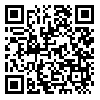Volume 25, Issue 1 (2022)
mjms 2022, 25(1): 33-40 |
Back to browse issues page
Ethics code: IR.MODARES.REC.1398.108
Download citation:
BibTeX | RIS | EndNote | Medlars | ProCite | Reference Manager | RefWorks
Send citation to:



BibTeX | RIS | EndNote | Medlars | ProCite | Reference Manager | RefWorks
Send citation to:
Choupankareh S, Raoufy M R, Mirnajafi-Zadeh J. Reviewing the effect of deep brain stimulation on brain rhythms in epilepsy. mjms 2022; 25 (1) :33-40
URL: http://mjms.modares.ac.ir/article-30-65395-en.html
URL: http://mjms.modares.ac.ir/article-30-65395-en.html
1- Department of Physiology, Faculty of Medical Sciences, Tarbiat Modares University, Tehran Iran , sh.choupankareh@gmail.com
2- Department of Physiology, Faculty of Medical Sciences, Tarbiat Modares University, Tehran Iran
3- Department of Physiology, Faculty of Medical Sciences, Tarbiat Modares University, Tehran, Iran
2- Department of Physiology, Faculty of Medical Sciences, Tarbiat Modares University, Tehran Iran
3- Department of Physiology, Faculty of Medical Sciences, Tarbiat Modares University, Tehran, Iran
Abstract: (700 Views)
In epilepsy as a chronic neurological disease, there are significant alterations in the brain network which results in abnormal brain activity. Understanding the exact changes in brain rhythms may help the investigators to find the brain networks activity in health and disease more precisely. In this article, at first we reviewed the findings from recent animal and clinical studies showing that brain rhythms are affected in the epileptic brain. Then, some documents demonstrating the compensative effect of DBS on these oscillations will be discussed. In this article we reviewed the studies in field of epilepsy and brain rhythms. For this purpose we searched the duciments by scientific serach engeens including PubMed, ScienceDirect and Google Scholar. The electrophysiological studies have indicated significant changes in delta (1–4 Hz), theta (4-7 Hz), alpha (8-12 Hz), beta (13–30 Hz), and gamma (30–80 Hz) oscilations in the epileptic brain. Recently, deep brain stimulation (DBS) has been suggested as a potential and efficient treatment for pharmacoresistant epileptic seizures. The exact mechanism of DBS action is unclear, but some studies demonstrate that one of its probable mechanisms is modulating neural network activity. It seems that the probable compensative alteration in brain rhythms may be considered as a mechanism of DBS anticonvulsant action.
Send email to the article author
| Rights and permissions | |
 |
This work is licensed under a Creative Commons Attribution-NonCommercial 4.0 International License. |







